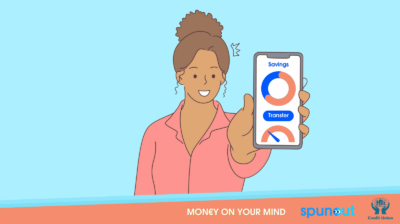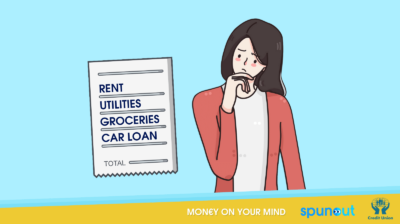Choosing a bank account
There are a few things to consider when it comes to deciding where to open a bank account

Having your own bank account can make it easier to manage your finances. We can use bank accounts for a variety of purposes, such as receiving wages, paying bills and saving money. It is possible to open an account with an Irish bank, as well as with an international online bank or e-money institution (such as Revolut, N26, or Bunq), building society, credit union, or An Post.
Before you open an account, it is important to consider your own needs and learn about what options are available.
To open a bank account in Ireland, most banks will require you to be at least 18 years of age. However, some banks will allow you to open a basic bank account when you are 14, and a junior account from even younger with your parent/ guardian’s support.
What are the different types of bank accounts?
The two main types of bank accounts are current accounts and deposit/ savings accounts.
Current accounts
Current accounts are used for managing your money day-to-day. A current account usually allows you to:
- Receive money such as your wages or social welfare payments
- Withdraw cash at an ATM or in the branch
- Pay for things with a debit card
- Pay bills by direct debit or standing order
- Transfer money to someone else
- Keep track of your spending
- Access an overdraft (short-term loan)
If you have never opened or used a bank account, you can open what is known as a basic bank account. When you open a basic bank account, you will not be charged any bank fees for the first year.
Many financial institutions also offer student current accounts. These accounts offer extra benefits to people who are in college when they open the account.
Deposit or savings accounts
A deposit account is also known as a savings account. It allows you to build up savings over time. If you have one of these accounts, you can sometimes earn interest on the money that you put into it. Interest is a payment that you receive for saving money and it usually is calculated as a percentage of the amount you have saved. Most interest rates are currently very low. If you earn interest on savings lodged in an Irish financial institution, the interest will be taxed. This is known as Deposit Interest Retention Tax (DIRT).
If you have savings or the opportunity to save, you can open a savings account as well as a current account. This will help you to keep your savings separate from your day-to-day spending.
Some financial institutions offer notice accounts. With these accounts, you are required to give advance notice (e.g. ten days) before you withdraw any of your money. This can be helpful if you are trying to be mindful of your spending.
How to choose a bank account
There are many different account options available, and the benefits vary depending on the institution and the type of account you choose. By doing some research and considering your own needs, you can find the best account for you.
Think about the location
When choosing where to open your account, it is a good idea to think about where it is located. You might like to be able to visit the bank, building society, post office or credit union in person should you have any problems, or if online banking is not an option for you. If this is the case, it is a good idea to open an account in a place that you have easy access to.
If you think you will be doing most of your money management online, having a branch near you is not as important. You can consider accounts in various locations, including e-money institutions.
Ask what they can offer you
When you are choosing an account, it is a good idea to compare the different ones available across banks, building societies, post offices and credit unions. Each one will offer slightly different benefits. By comparing your various options, you can decide what one is the most suitable for you.
Questions to ask include:
- Will I be charged a quarterly fee?
- Will I be charged a fee for certain transactions (such as ATM withdrawals, debit card purchases, overdraft fees, using my debit card abroad, etc.)?
- Can I manage this account using online or mobile banking?
- What are the interest rates for overdrafts?
- What are the interest rates for saving?
- Does the account offer me any special student services or perks?
The Competition and Consumer Protection Commission (CCPC) and comparison sites like Bonkers.ie or Switcher.ie have several tools that allow you to compare current, student current and deposit accounts.
Check out the CCPC Money tools.
Read up on the terms and conditions
When considering accounts, it is important to be aware of any terms and conditions that will apply to you. For example, some accounts are only free for a certain period of time, or if you keep a minimum amount of money in them. Before you open your account, the bank should give you a fee information document. This document shows the most important services offered on the account and any related fees that you might have to pay.
If you are opening a student account, it is important to know what to expect once you finish your studies. Speak with your financial institution about this and ask whether fees will increase once you leave college.
Need more information, advice or guidance?
We offer information, advice and guidance about the issues that matter to you. Our online Youth Information Chat service is for 16 to 25 year olds and is available Monday to Friday, 4pm to 8pm (excluding Bank Holidays).






